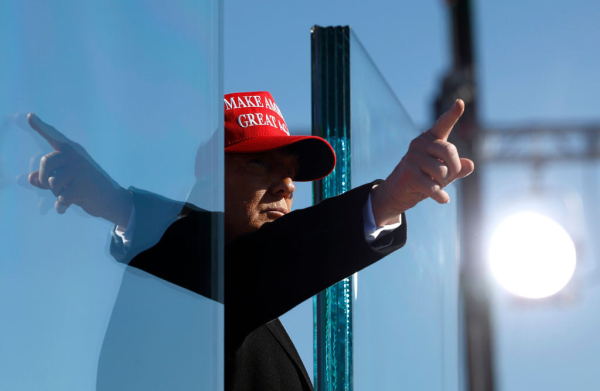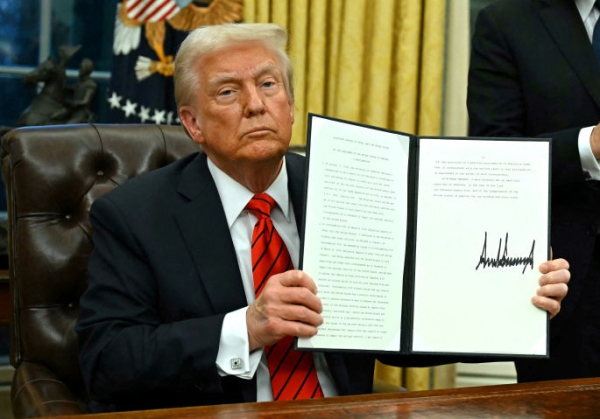Suche
Beiträge, die mit Protectionism getaggt sind
"Donald Trump’s presidential administration has exempted smartphones and computers from the 125% levies imposed on imports from China as well as other “reciprocal” tariffs, which experts had cautioned might cause electronic consumer prices to spike dramatically in the US.
The announcement was made late on Friday in a US Customs and Border Protection (CBP) notice that said the devices would be excluded from the 10% global tariff that Trump recently imposed on most countries, along with the much heftier import tax on China.
The CBP’s notice follows concerns from tech companies that the price of electronics for US consumers might surge with many of them manufactured in China. The notice also contained exemptions for additional electronics and components, such as memory cards, solar cells and semiconductors."
https://www.theguardian.com/us-news/2025/apr/12/trump-administration-smartphones-computers-china-tariffs
#USA #Trump #Tariffs #TradeWar #China #Protectionism
The United States will face shortages of critical inputs ranging from basic ingredients of most pharmaceuticals to inexpensive semiconductors used in cars and home appliances to critical minerals for industrial processes including weapons production. The supply shock from drastically reducing or zeroing out imports from China, as Trump purports to want to achieve, would mean stagflation, the macroeconomic nightmare seen in the 1970s and during the COVID pandemic, when the economy shrank and inflation rose simultaneously. In such a situation, which may be closer at hand than many think, the Federal Reserve and fiscal policymakers are left with only terrible options and little chance of staving off unemployment except by further raising inflation."
https://www.foreignaffairs.com/united-states/trade-wars-are-easy-lose
#USA #Trump #Tariffs #TradeWar #China #Protectionism #PoliticalEconomy

Trade Wars Are Easy to Lose: Beijing Has Escalation Dominance in the U.S.-China Tariff Fight
Beijing has escalation dominance in the U.S.-Chinese tariff fight.Adam S. Posen (Foreign Affairs Magazine)
As well, it may be that the uncertainty created over access to the US market likewise has method in its madness: corporations may now bias future global investments and supply chains to locate in the US “just-in-case.” This is of general concern but hits home especially in Canada since it is so close, so already integrated, and with costs relatively comparable.
Underlying all this lies the primary question at the core of Trump’s agenda. Paraphrased, it asks: “Why, if America is the world’s dominant power, does it accept such a disproportionate share of globalization’s burdens and receive such an unfair share of the benefits?” The framing of America’s status in these over-wrought terms adds a further method-in-madness: misdirection."
https://socialistproject.ca/2025/04/man-who-would-be-king/
#USA #Trump #Tariffs #TradeWar #PoliticalEconomy #Capitalism #Neoliberalism #Protectionism
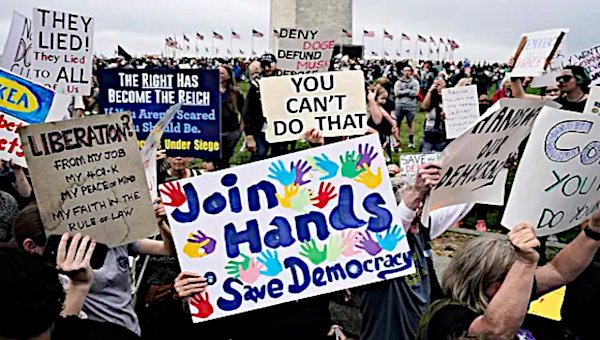
The Man Who Would Be King
Headwinds have emerged in Donald Trump’s rush to derail and transform the state and place the US Empire on a radically new – but no less oppressive – footing.socialistproject.ca
Now factor in the newly announced tariff for goods from China, which currently totals 54%. The cost rises to around $850. That profit margin would shrink dramatically if Apple didn’t up the price. And you don’t become a trillion-dollar gadget company by charging for things at cost."
https://www.wsj.com/tech/personal-tech/iphone-apple-tariffs-china-bb20c7a3?st=uZeNUf&reflink=desktopwebshare_permalink
#USA #Trump #Tariffs #TradeWar #Protectionism #China #Apple #iPhone
"Not long after President Donald Trump’s inauguration, the administration’s economic staff went to work on a daunting task: determining tariff rates for dozens of countries to fulfill the president’s campaign pledge of imposing “reciprocal” trade barriers.
After weeks of work, aides from several government agencies produced a menu of options meant to account for a wide range of trading practices, according to three people familiar with the matter.
Instead, Trump personally selected a formula that was based on two simple variables — the trade deficit with each country and the total value of its U.S. exports, said two of the people, who spoke on the condition of anonymity to recount internal talks. While precisely who proposed that option remains unclear, it bears some striking similarities to a methodology published during Trump’s first administration by Peter Navarro, now the president’s hard-charging economic adviser. After its debut in the Rose Garden on Wednesday, the crude math drew mockery from economists as Trump’s new global trade war prompted a sharp drop in markets."
https://www.washingtonpost.com/politics/2025/04/04/trump-tariffs-reason-advisers/
#USA #Trump #Tariffs #Protectionism #TradeWar #PoliticalEconomy
Almost everything Mr Trump said this week—on history, economics and the technicalities of trade—was utterly deluded. His reading of history is upside down. He has long glorified the high-tariff, low-income-tax era of the late-19th century. In fact, the best scholarship shows that tariffs impeded the economy back then. He has now added the bizarre claim that lifting tariffs caused the Depression of the 1930s and that the Smoot-Hawley tariffs were too late to rescue the situation. The reality is that tariffs made the Depression much worse, just as they will harm all economies today. It was the painstaking rounds of trade talks in the subsequent 80 years that lowered tariffs and helped increase prosperity.
On economics Mr Trump’s assertions are flat-out nonsense. The president says tariffs are needed to close America’s trade deficit, which he sees as a transfer of wealth to foreigners. Yet as any of the president’s economists could have told him, this overall deficit arises because Americans choose to save less than their country invests—and, crucially, this long-running reality has not stopped its economy from outpacing the rest of the G7 for over three decades. There is no reason why his extra tariffs should eliminate the deficit. Insisting on balanced trade with every trading partner individually is bonkers—like suggesting that Texas would be richer if it insisted on balanced trade with each of the other 49 states, or asking a company to ensure that each of its suppliers is also a customer."
https://www.economist.com/leaders/2025/04/03/president-trumps-mindless-tariffs-will-cause-economic-havoc
#USA #Trump #Tariffs #TradeWar #Protectionism #Economy #PoliticalEconomy
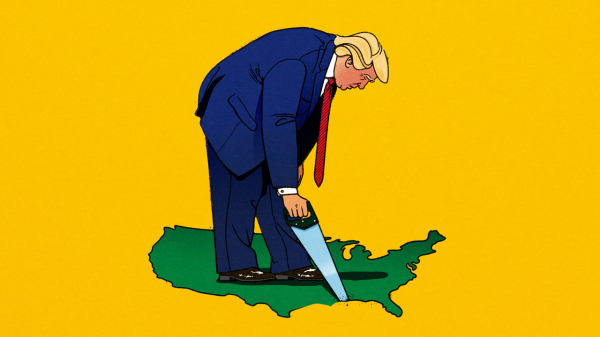
President Trump’s mindless tariffs will cause economic havoc
But the rest of the world can limit the damageThe Economist
Any gains for the productive economy from Trump’s tariffs will likely be sabotaged by the FIRE sector’s malinvestment of capital and the foreign-policy establishment’s unwillingness to withdraw from the world. America can’t have its cake (of maintaining the dollar as the global reserve currency) and eat it too (bringing back manufacturing and resolving trade imbalances). The oligarchy cannot be expected to act in America’s best interests, because that is at the expense of its interests.
Ending the rule of the American oligarchy would require reductions of military spending, ending proxy conflicts, closing bases, and embracing diplomacy. For the FIRE sector, this would entail taxing financial transactions, using central bank window guidance, and establishing a national development bank to direct investment into productive sectors and not to asset price inflation. Tariff policy wouldn’t be used as a retaliatory action, but as a targeted and measured policy tool for incubating critical domestic industries."
https://www.compactmag.com/article/liberating-america-requires-more-than-tariffs/
#USA #Trump #Tariffs #Financialization #Globalization #FreeTrade #Protectionism
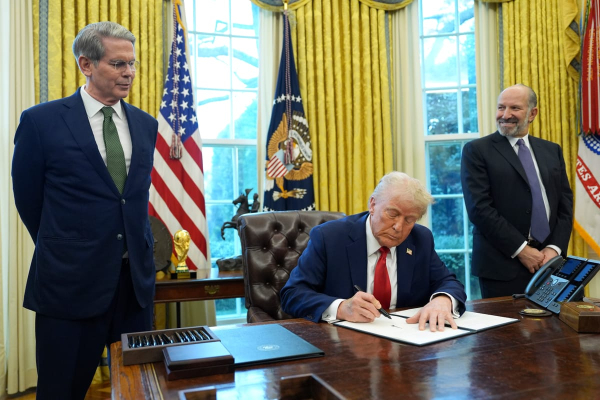
Liberating America Requires More Than Tariffs
Today, we arrive at President Donald Trump’s heralded “Liberation Day,” in which broad tariffs will be implemented in response to manufacturing and trade imbalances.Peter Ryan (Compact)
Trump is doing mirror-world tariffs: tariffs without industrial policy, tariffs without social safety nets, tariffs without retraining, tariffs without any strategic underpinning. These tariffs will crash the US economy and will create calamitous effects around the world:
(...)
But the fact that Trump's tariffs are terrible doesn't mean tariffs themselves are always and forever bad. Resist the schizmogenic urge to say, "Trump likes tariffs, so I hate them." Not all tariffs are created equal, and tariffs can be a useful tool that benefits working people.
And also: the fact that tariffs can be useful doesn't imply that only tariffs are useful. The digital age – in which US-based multinational firms rely on digital technology to loot the economies of America's trading partners – offers countries facing US tariffs a powerful retaliatory tactic that has never before been seen on this planet. America's (former) trading partners can retaliate against US tariffs by abolishing the legal measures they have instituted to protect the products of US companies from reverse-engineering and modification. Countries facing US tariffs can welcome US imports – of printers, Teslas, iPhones, games consoles, insulin pumps, ventilators and tractors – but then legalize jailbreaking these devices:"
https://pluralistic.net/2025/04/02/me-or-your-lying-eyes/#spherical-cows-on-frictionless-surfaces
#USA #Trump #Tariffs #TradeWar #Protectionism #FreeTrade
And the irony is that the world the Western liberal establishment is grieving over today came into being as a result of the Nixon Shock. While admonishing the idea of a US President delivering a rude shock to the world economy, they are lamenting the passing of what only came into being because of another President’s readiness to deliver an even ruder shock. That is, the Nixon Shock gave birth to the darlings of today’s liberal establishment: neoliberalism, financialisation and globalisation."
https://unherd.com/2025/04/will-liberation-day-transform-the-world/
#USA #Trump #TradeWar #PoliticalEconomy #Tariffs #Protectionism #Nixon #Dollar
This argument came into politics through both sides of the aisle. The Reagan administration was run by Wall Street, with men like banker William Simon and Chicago Schooler Robert Bork organizing policy. But it was preceded by Jimmy Carter’s deregulation of shipping, banking, trains, buses, trucking, airlines, energy, and even skiing, and his appointment of Wall Street-friendly Fed Chair Paul Volcker.
In 1980, the Democratic-led Senate Joint Economic Committee published a report titled Plugging in the Supply Side. Lloyd Bentsen, who later became Bill Clinton’s Treasury Secretary during the NAFTA fight, authored it. Everyone from Paul Tsongas, to Gary Hart to Robert Reich bought this frame, as did magazines like The New Republic. By 1980, neoliberalism had become consensus. Ted Kennedy, Jimmy Carter’s ostensibly “liberal” nemesis, fought to go further than Carter in ending rules on airplanes, and Ralph Nader aligned with Citibank on deregulating finance. Many of the unions, with the exception of the Teamsters, bought into deregulation.
The consequences were immediate. The U.S. manufacturing base took a major hit as the trade deficit exploded under Ronald Reagan. Bill Clinton continued and expanded it, focusing on high-technology pursuits and a “Bridge to the 21st Century.” When you think about it, that’s weird. How can a nation keep importing more than it exports, on a permanent basis? Why would trade partners keep sending them stuff? The answer is in the part of the story that the proponents of this model suggest, which is services."
https://www.thebignewsletter.com/p/monopoly-round-up-tariffs-abundance
#USA #Tariffs #Neoliberalism #Protectionism #Manufacturing
That should have never been acceptable. But now, as it starts throwing its closest friends under the bus, it’s long past time to embrace — and even hasten — the end of American hegemony and the horrors it’s brought on the world. If countries that have long claimed to believe in an international rules-based order truly believe in human rights and international law, it’s time for them to break with the United States, reject their ongoing subordination to its tech dominance, find new friends and allies, and build a better tech infrastructure that enables a better world for everyone."
https://www.disconnect.blog/p/the-united-states-has-gone-rogue
#USA #Trump #Musk #DOGE #Imperialism #TradeWar #Tariffs #Protectionism
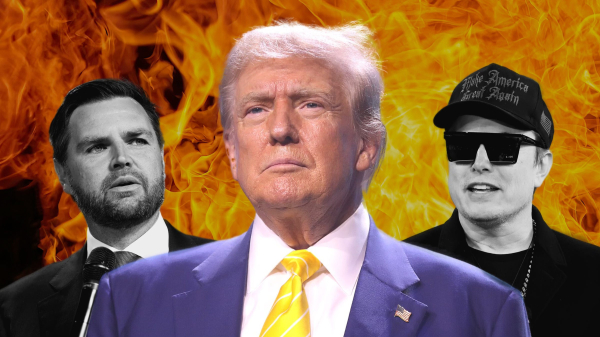
The United States has gone rogue. There must be consequences.
Countries must form new alliances and end their dependence on US tech in response to Trump’s trade warParis Marx (Disconnect)
But tariffs are only the first phase of his masterplan. With high tariffs as the new default, and with foreign money accumulating in the Treasury, Trump can bide his time as friends and foes in Europe and Asia clamour to talk. That’s when the second phase of Trump’s plan kicks in: the grand negotiation.
Unlike his predecessors, from Carter to Biden, Trump disdains multilateral meetings and crowded negotiations. He is a one-on-one man."
https://unherd.com/2025/02/why-trumps-tariffs-are-a-masterplan/
#USA #Trump #Tariffs #TradeWar #PoliticalEconomy #Protectionism
Little, and perhaps nothing, in the behaviour of Trumpism to date has suggested it has either the ideological coherence or political discipline to weather such a storm. True enough, Trump is happy to foster chaos and cause radical disruption — look no further than his current assault on key institutions of the US federal government. But such disruptions have tended to have the support of corporate America or, at any rate, not flown directly in the face of its interests.
In such a volatile atmosphere, it’s anyone’s guess what exactly will happen in the coming days and weeks. When the dust settles, perhaps selective tariffs will remain in place for strategically-chosen industries (or something in that vein). But my instinct is that Trump will initiate some sort of climbdown in fairly short order, likely proclaiming — regardless of what actually occurs — that his objectives have been achieved (I wouldn’t even discount the possibility of Trump pausing the tariffs he’s threatened to impose on Canada before day’s end). The effect of his tariffs on the import-dependent US economy will be profound, and compounded by the impact of retaliatory tariffs planned by Canada, China, and in due course possibly Mexico and Europe as well."
https://www.lukewsavage.com/p/trumps-trade-war-will-be-maga-economics
#USA #Trump #Tariffs #TradeWar #Protectionism #Mexico #Canada
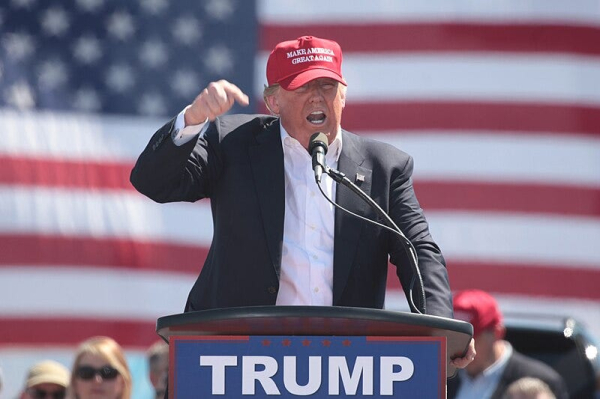
Trump’s trade war will be MAGA economics' Waterloo
Trump's heavy-handed tariff policy will test the limits of the entire Trumpian project — and begs the question of what exactly Trumpism is trying to achieve.Luke Savage
Why is that? Well it’s important to recognize that tariffs don’t apply to the retail price of a good, but to its wholesale price when imported. So a Nike shoe might cost $150 retail to an end consumer at a store but that’s before markup; Nike is paying $20 for it from a Chinese supplier. The $130 difference between what the Chinese supplier charges and the end American consumer pays is a mark-up, and it goes to Nike for branding, distribution, profit, etc. The tariff is charged on the $20. So even a very large 50% tariff will be just $10, which means Nike will still have a giant cushion, and can choose whether to pass the tariff along or reduce its profit, or both. Or it can negotiate some of the cost with its Chinese supplier.
This time, because the tariffs are hitting every sector, consumer prices are likely to change, though it will differ industry-by-industry. There are plenty of companies who have to raise prices to cover costs. But another reason for price hikes could be “seller’s inflation,” aka there’s market power throughout the economy, and corporations with such power have an excuse to charge higher prices, as they did during Covid. They can just blame Trump, and collect more profit. On the other hand, companies are scared of the new administration."
https://www.thebignewsletter.com/p/monopoly-round-up-what-did-trump
#USA #Trump #TradeWar #China #Tariffs #Protectionism
An even more significant example is infant-industry protection, which has worked best when it exists alongside other instruments to incentivize domestic firms to innovate and upgrade. Some notable cases include the late-nineteenth-century United States, post-1960s South Korea and Taiwan, and post-1990s China. In each of these cases, industrial policies went far beyond trade protection, and it is unlikely that tariff barriers on their own would have produced the gains each of these economies experienced.
Similarly, green policies often require some trade barriers to make them economically and politically viable, as in the case of the European Union’s carbon tariffs and the local-content requirements of the US Inflation Reduction Act. In all these cases, tariffs play a supporting role for other policies that serve a broader purpose, and can be a small price to pay for the larger benefit.
Unfortunately, Trump has not offered a domestic agenda of renewal and economic reconstruction in any of these areas, and his tariffs will likely stand – and fail – on their own."
https://www.project-syndicate.org/commentary/trump-has-wrong-concept-of-tariffs-by-dani-rodrik-2025-01
#USA #Trump #Protectionism #TradeWars #Tariffs #PoliticalEconomy

What Tariffs Can and Can’t Do | by Dani Rodrik - Project Syndicate
Dani Rodrik argues that import duties are neither an all-purpose tool, as Donald Trump believes, nor a purposeless one.Project Syndicate
Among the bright spots in this bleak scenario are China and India with estimated growth rates of 4.5 per cent and 6.5 per cent respectively in 2025. There are other economies with faster growth but they do not matter for global output as their share of output in the world economy is very small."
https://openthemagazine.com/cover-stories/a-fragmenting-world/
#Globalization #Protectionism #TradeWars #PoliticalEconomy #GeoEconomicFragmentation
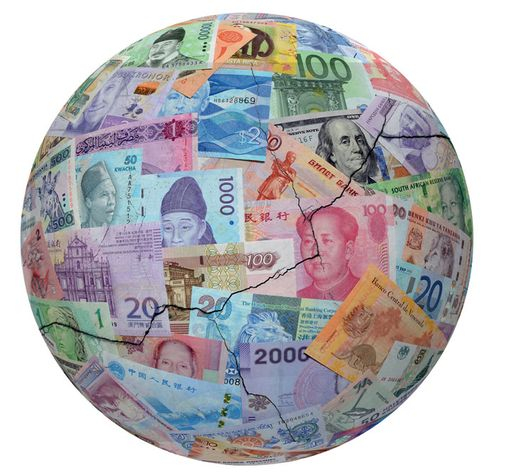
A Fragmenting World
Are we about to see the end of three decades of global economic integration?Siddharth Singh (Open The Magazine)
👉 "The next question is whether the protectionist policies espoused by Mr. Trump can save the people who are asking for his help. Unfortunately, the trade wars of the 1930s suggest the answer is probably “No.”
In the 1930s, the global economy was thrown into turmoil by the sharp increases in US import duties implemented in 1930 under the Smoot-Hawley Tariff Act and the retaliatory tariffs by other nations that followed. The value of global trade plunged 66% from the peak, and economies around the world suffered heavily.
The resulting economic turmoil eventually led to World War II. The US, which got through the greatest tragedy in human history by mobilizing its military capabilities, decided the world must never repeat this mistake. To that end, it introduced the system of free trade symbolized by the 1947 GATT (General Agreement on Tariffs and Trade).
This US-led free trade system produced unprecedented prosperity for humanity, but cracks began to appear when the nature of the currency market changed after the developed nations began liberalizing capital flows in 1980.
Today, just as in the 1930s, free trade is facing a potential crisis in the form of a sharp increase in US tariffs. If the authorities seriously wish to avoid this outcome, I think the nations of the world must come together and carry out an exchange rate adjustment similar to the Plaza Accord." 👈
https://www.ineteconomics.org/perspectives/blog/trump-tariffs-and-exchange-rates-the-message-of-elections-in-the-us-and-japan
#USA #Trump #Protectionism #FreeTrade #USTariffs #TradeWar #PoliticalEconomy #MonetaryPolicy #EconomicHistory
https://www.ineteconomics.org/perspectives/blog/trump-tariffs-and-exchange-rates-the-message-of-elections-in-the-us-and-japan
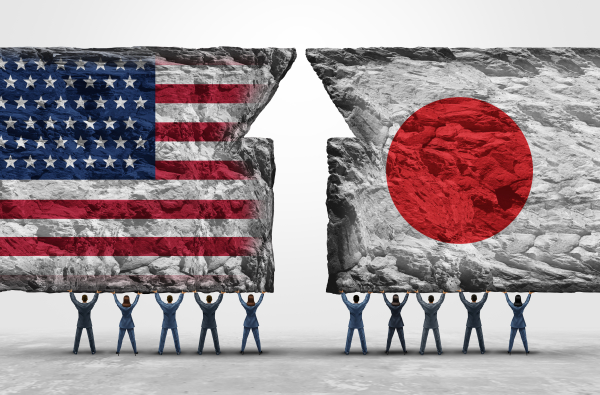
Trump, Tariffs, and Exchange Rates: The Message of Elections in the US and Japan
What Japan, the US, and Europe have in common is growing popular anger over the economy despite high stock prices and low unemployment.Institute for New Economic Thinking

